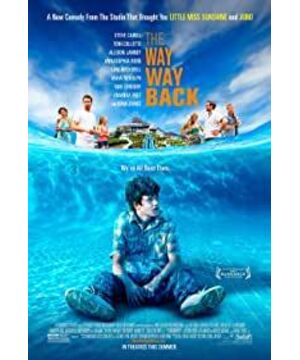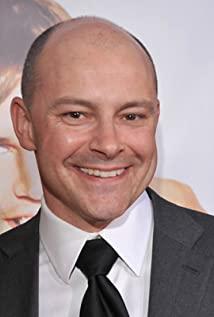14-year-old Duncan, his parents divorced, he lives with his mother. This summer, his mother went on vacation with her new boyfriend Trent and his daughter. In this way, the two adults are trying to take the relationship a step further. They hope to live in harmony with their children and become a real family in the future. But obviously, that didn't go well. Trent is tough and self-centered, and has always been unable to communicate properly with Duncan, while Duncan's mother is too submissive and forbearing.
At the seaside, Duncan, who is out of tune with his surroundings, begins to find his own world. He met a new friend at Waterworld, the caretaker Owen. Unlike Duncan, who was at a loss and nervous, Owen was full of jokes, gag at everyone, and looked like he didn't care about the world. Owen put Duncan on a temporary job at Waterworld, bringing him new friends and teaching him how to live in harmony with the world in a more relaxed way. Duncan's heart became stretched and confident little by little. Meanwhile, his mother's relationship with her boyfriend is deteriorating, with cracks appearing in the shell of seemingly intimacy.
This is a typical growth story. It tells how a boy bid farewell to his youth and grows into a confident man. At the same time, it easily ridicules the hypocrisy and helplessness in the adult world from the perspective of a child. The adults in this film are clearly divided into two, one is the serious middle-class people who work hard, form families, go on vacation, hang out with friends, and seem to obey the order but have nowhere to put their hearts; The bohemian people represented by Owen seem to only live in the moment and have a condescending attitude towards life, but they firmly know their own direction in their hearts.
"Lost and Return" has a typical two-line narrative, one thread is written along the growth path of young Duncan, from a teenager who is overwhelmed by the outside world to a confident man, and the other thread describes an adult Disquiet in the seemingly stable structure of the world.
Interestingly, the film created the image of the three fathers, intentionally or not. One is Duncan's unforgettable biological father, but this is an "absent father", he stays in Duncan's mind, is his imaginary authority, role model and object to rely on, but the irony is that he never appeared, In the end, Duncan even learned that it was the biological father who voluntarily gave up custody. The second father is the new boyfriend of Duncan's mother, who is physically present but absent mentally, always appearing in a negative image. The third is Owen, the administrator. To a certain extent, he is a real father. He has done everything a father should do, giving Duncan confidence and happiness. And while Duncan was growing up, Owen himself also changed from a prodigal son to a more responsible man. This is pretty much a sample of the perfect father-son relationship in real life.
To a certain extent, "Lost and Return" is very similar to "Little Miss Sunshine", which was nominated for the Oscar for best picture. The important thing is that this film expounds to people a fact that is often overlooked. Growth is not only about teenagers. It is only in progress when it is not completed. Adults are still on the road of growth, which is a lifetime. thing.
"Lost and Return" is a typical film with tears in laughter. It is warm and high-spirited but not preachy. It directly describes the difficulties of life but it is enough, and there is a kind of compassion that "people are hard to tear down". In today's China, there are actually many similar themes that can be made into such films in the era of violent dislocation, but we cannot see them in the Chinese film industry. Because this type of film needs self-deprecating courage and introspective spirit, both for the photographer and the audience, it is plain, beautiful, gentle and true, so it is destined to have no big scenes and lack of topicality. Chinese audiences are more willing to see heavy-duty car chases and fights on the big screen, rather than calmly looking into their hearts. I have to say, this is really a pity.
View more about The Way Way Back reviews











